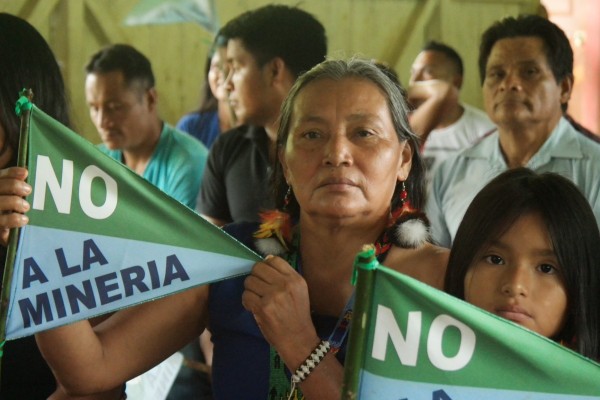-

Did Mulroney really ‘lead the fight’ against apartheid?
The emphasis placed on former Prime Minister Brian Mulroney’s opposition to apartheid—and the erasure of left-wing governments and movements that had supported the liberation fighters materially and for far longer—serves a deeper political purpose, writes Owen Schalk.. It is about more than Mulroney. It’s about Canadians’ perception of their own country on the world stage.
-

The myth of the ‘nanny state’
Those who promote right-wing solutions for societal ills have long argued for minimal state interference with the play of market forces. It has often been suggested that all attempts to constrain unbridled profit-making are just so many barriers to ambition, hard work and prosperity. The sexist term “nanny state” is often pressed into service to make the point.
-

An extreme act of protest
Aaron Bushnell’s supreme sacrifice cuts like a knife through the Orwellian doublethink—mass slaughter of innocent civilians is “self-defense,” the IDF is “the most moral army in the world”—that allows us to continue to live with what the highest court in the world has described as a plausible genocide.
-

Igniting conflict in the heart of Africa
The facts on the ground show that Western imperialist policies for Africa—if we needed more evidence of this—are inherently violent, have created failed states and are unsustainable. While it is not possible to undo history, it is possible for Africans to make choices that increase their sovereignty instead of undermining it.
-

Complaint by Ecuadorian Indigenous nation asks BC Securities Commission to investigate Solaris Resources
On February 29, the Shuar Arutam People (PSHA) of Ecuador filed a complaint against Vancouver-based Solaris Resources Inc. before the British Columbia Securities Commission over its repeated failure to disclose material information to shareholders regarding its Warintza mining project, a large-scale copper and gold mine which overlaps with PSHA’s titled territory.
-

Richard Sakwa: the Charter international system is in deep crisis
What is required to resolve the crisis is not a new international system but a new pattern in international politics. For that to occur leadership at the national and international level is required, accompanied by pressure from political associations and popular movements. This is the real revolution of our time.
-
_600_400_90_s_c1.jpg)
Vancouver’s go-slow multiplex policy could blow a hole in provincial housing projections
The long reign of exclusionary single-family zoning is being challenged in British Columbia—and none too soon amid a severe housing shortage. The BC government has unveiled major pieces of housing legislation including a policy that requires cities to allow multiplexes with three to six homes on portions of land where they have long blocked all but single-family houses.
-
_600_400_90_s_c1.jpg)
AMLO’s push for environmental reforms angers Canadian mining sector
In the final years of his presidency, AMLO has faced opposition from Canada and the US, weathering legal challenges and diplomatic pressures from Ottawa and Washington over his efforts to increase the state’s role in his country’s energy and agriculture sectors. Likewise, Canada has vocally opposed AMLO’s measures to strengthen the Mexican state’s hand in mineral extraction.
-

A freer Russia for whom?
Roher’s documentary gave the game away seconds into its own run-time when the director asked his subject, with barely-contained glee, to imagine a life after his own inevitable assassination—that’s how enthusiastic and impatient Western leaders were to make a martyr out of Alexei Navalny. If I was in Pussy Riot I’d be sleeping with the lights on.
-

An endgame in Ukraine may be fast approaching
Even if Ukraine can somehow regain the initiative, it seems very doubtful that it could ever gain the degree of military superiority that it would need to achieve its stated political objective of restoring its 1991 borders. It would be unwise to say that that is impossible, but at present it’s very hard indeed to imagine how it could be done.



